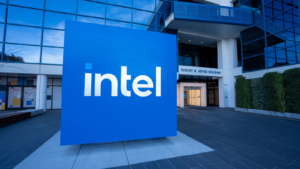It’s been a great year so far for the Bulls. It seems like the markets and most portfolios are hitting new all-time highs every day. When things get frothy and valuations are stretched, it means some stocks need to be sold after reassessing your investment thesis. In my opinion, these are three stocks to sell now as something has fundamentally changed.
Each of these stocks is a popular choice in their respective sectors. We all know how well semiconductor stocks and mega-cap companies have performed this year. Despite this, I’ve targeted two tech giants and an EV darling that I believe are raising red flags compared to their peers. Here are three popular stocks that I believe should be avoided at their current prices.
Amazon (AMZN)

A quick scan of social media will show you that everyone is anticipating an imminent breakout for Amazon (NASDAQ:AMZN). The stock recently hit all-time high prices on a split-adjusted basis but has had trouble breaking through a strong resistance area at around $200. Heavy selling pressure from Jeff Bezos has also weighed on the stock’s price in July.
I flipped bearish on AMZN before Bezos began selling his $5 billion chunk of stock. The stock has historically done well leading to its annual Prime Day event in July. But today’s version of Amazon is different from the one in years past. Today, a majority of the company’s profitability and revenue are driven by Amazon Web Services or AWS. The company’s cloud computing segment now accounts for about 17% of Amazon’s total revenue and about 60% of its operating income.
Unfortunately for AMZN bulls, AWS is showing signs of declining market share. In the most recent quarter, AWS lost 2.0% of the market while Microsoft’s (NASDAQ:MSFT) Azure gained 2.0%. AWS is also growing its revenue at a slower rate than both Azure and Alphabet’s (NASDAQ:GOOG, NASDAQ:GOOGL) Google Cloud. Investors will have a keen eye on Amazon’s earnings report on Aug. 1 to see if AWS continues to cede customers to its rivals. If it is, then that is enough of a red flag for me to consider trimming my position.
Intel (INTC)

When I think of high-flying chip stocks, I immediately think of the likes of NVIDIA (NASDAQ:NVDA), AMD (NASDAQ:AMD), and Intel (NASDAQ:INTC). Long before AI chips were all the rage, Intel was the clear industry leader. It was by far the largest producer of CPU chips on the market but has since ceded market share to AMD. In a year where the NASDAQ has gained 24.6% so far, Intel has fallen by 27.8%.
So what happened to Intel? As I mentioned, it lost a major market share in its core CPU segment. One of the worst blows to Intel was when Apple (NASDAQ:AAPL) decided to develop its CPUs in-house rather than using Intel’s chips. Microsoft has also chosen to use CPUs from ARM (NASDAQ:ARM) rather than Intel due to superior speed and power efficiency.
Some will point to Intel’s deal with the U.S government worth $8.5 billion to develop its AI chips. In my opinion, it’s too little too late for Intel as it is already years behind NVIDIA in the AI race. Combined with a valuation that continues to inflate thanks to declining revenues, Intel is raising enough alerts for me to consider it one of the stocks to sell now.
Lucid Group (LCID)

While chip and AI stocks have been flying higher this year, the opposite can be said for EV companies. Until recently, shares of EV leader Tesla (NASDAQ:TSLA) were negative for the year. Many had written Lucid (NASDAQ:LCID) off for dead but they might be surprised to hear that the stock is up by 48% over the past six months.
Lucid’s CEO Peter Rawlinson recently reiterated the support from the company’s largest shareholder: Saudi Arabia’s Public Investment Fund (PIF). The company also reported a 70% growth in deliveries for the second quarter. Lucid delivered a company-record 2,394 EVs after slashing prices.
But an increase in deliveries is still not enough to remain bullish on the stock following its recent breakout. Shares of LCID still trade at 15.2x sales which is nearly double the multiple of Tesla and nearly five times the multiple of Rivian (NASDAQ:RIVN). Lucid is still years away from profitability as the company has a five-year net income CAGR of -31%. Lucid’s gross margins are easily the worst among American EV makers and will have to spend more capital expenditure to scale to a level where it can ever compete with Tesla. In the most recent quarter, Tesla delivered 444,000 EVs compared to Lucid’s 2,394. It’s been an impressive run, but LCID is one of the stocks to sell now to lock in any gains made during this recent rally.
On the date of publication, Michael Que held a LONG position in AMZN. The opinions expressed in this article are those of the writer, subject to the InvestorPlace.com Publishing Guidelines.
On the date of publication, the responsible editor did not have (either directly or
indirectly) any positions in the securities mentioned in this article.
